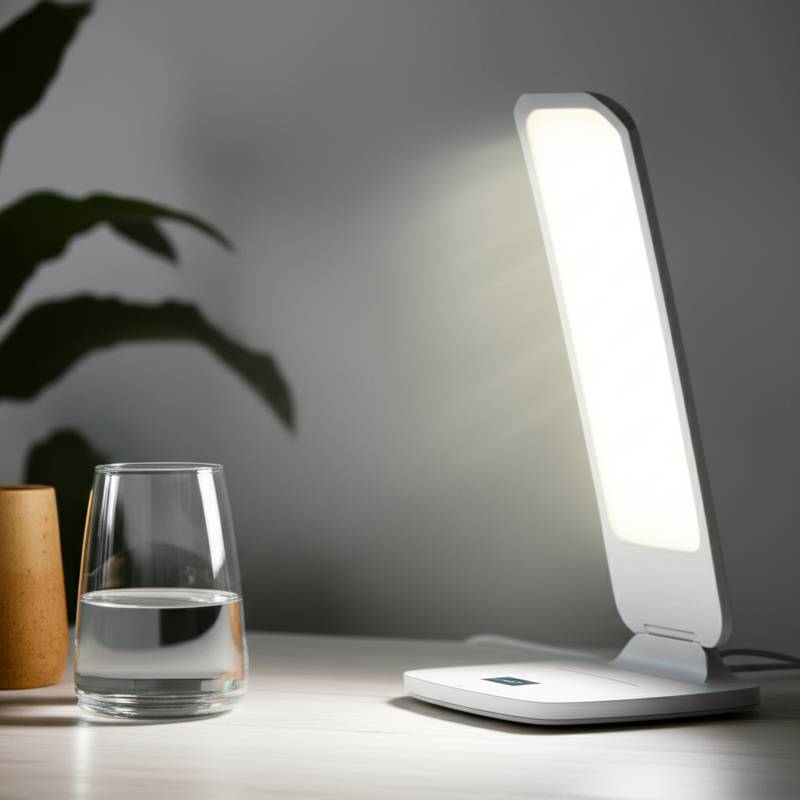Boost Your Mood with Vitamin D Light Therapy Indoors
That familiar sluggishness arrives as days shorten and sunlight fades. Homes grow dim, energy wanes, and comfortable spaces tempt rest over activity. Often, the absence stems from limited vitamin D and bright light exposure, both essential for vitality. Indoor vitamin D light therapy provides a reliable solution, delivering a sunlit boost directly to living rooms or workspaces without relying on weather.
This approach avoids harsh fluorescent lighting. Instead, it employs therapeutic options that replicate natural daylight's benefits. Such lighting serves as a wellness enhancement, integrating technology with fundamental human needs.
Why Vitamin D and Light Matter
Vitamin D earns its nickname as the sunshine vitamin because skin produces it upon sunlight exposure. This nutrient supports bone health, immune response, and mood stability. Bright light exposure further regulates the circadian rhythm, which controls sleep patterns, appetite, and daily energy.
Scarce natural sunlight disrupts these processes. Light therapy devices counteract this by simulating daylight wavelengths. Users often experience elevated mood, consistent energy, and improved sleep quality as a result.
Smart Indoor Light Therapy Options
Standard lighting fails to deliver therapeutic effects. Purpose-designed devices combine health benefits with aesthetic appeal. The following options suit various lifestyles and spaces.
1. Full-Spectrum Light Boxes
Full-spectrum light boxes target seasonal mood challenges effectively. They emit bright light approximating natural daylight's spectrum. Position one on a desk or counter for 20 to 30 minutes each morning to align internal rhythms. This practice rivals caffeine's alertness without the crash.
2. Vitamin D Simulating Lamps
These lamps replicate specific light wavelengths that stimulate vitamin D synthesis. They supplement rather than fully substitute sunlight, ideal for prolonged indoor periods. Modern designs integrate seamlessly into contemporary interiors, resembling stylish fixtures more than clinical tools.
3. Dawn Simulators
Dawn simulators gradually increase light intensity to mimic sunrise. This method eases awakening, minimizing morning grogginess and fostering better sleep cycles. Individuals who struggle with abrupt alarms find these devices particularly transformative.
4. Portable Light Therapy Units
Portable units accommodate travel or frequent movement within the home. Compact and versatile, they fit on nightstands, desks, or reading areas. Battery-powered models offer convenience comparable to mobile electronics.
5. Integrated Wellness Lighting
Home renovations present opportunities for built-in wellness systems. Tunable LED setups adjust color temperature and brightness to follow sunlight's daily progression. Crisp morning illumination energizes, while warmer evening tones promote relaxation, creating a natural indoor environment.
Why It Matters for Your Home
Beyond health gains, light therapy revitalizes living spaces. Insufficient brightness renders rooms dull and uninviting. Introducing therapeutic light infuses vitality, making environments more engaging and hospitable.
Many users report noticeable shifts in routines. One individual described using a light box during breakfast as a catalyst for heightened alertness and productivity. Another credited a dawn simulator with eliminating repeated alarm snoozes, leading to smoother starts.
Tips for Making It Work
Consistency maximizes light therapy's impact. Implement these strategies for optimal outcomes.
- Use devices in the morning to enhance mood and sleep regulation.
- Position lamps at a comfortable distance to ensure light reaches the eyes without discomfort.
- Maintain daily sessions to cultivate habits and accumulate benefits.
- Complement therapy with available natural light from windows for amplified effects.
- Select aesthetically pleasing designs to encourage regular use.
The Emotional Side of Light
Light influences emotional states beyond mere illumination. A dim setting evokes lethargy, while bright areas inspire openness. Therapeutic lighting harnesses this dynamic to provide the uplift bodies require.
Gaining control over indoor conditions fosters empowerment. Creating personal sunshine counters weather dependency, alleviating confinement during extended indoor time.
Living with Wellness Lighting
Light therapy integrates effortlessly into daily life over time. Activating a lamp alongside morning coffee becomes routine, akin to other household habits. Dawn simulators contribute to a gentle wake-up narrative.
These practices extend beyond mood improvement to broader lifestyle enhancements. Enhanced sleep sharpens focus. Increased energy supports activities like meal preparation, physical exercise, or task completion. Light therapy establishes a reliable base for indoor well-being.
Embrace Indoor Vitality
Adopting light therapy invests in home-based comfort and performance. This practical upgrade elevates spirits, sharpens concentration, and eases seasonal transitions. Similar to ergonomic features in appliances, it streamlines everyday experiences.
Start with light to infuse wellness into your surroundings. Practical and soothing, it reshapes daily navigation. Equipped with appropriate lighting, homes evolve into havens of energy, tranquility, and equilibrium.


